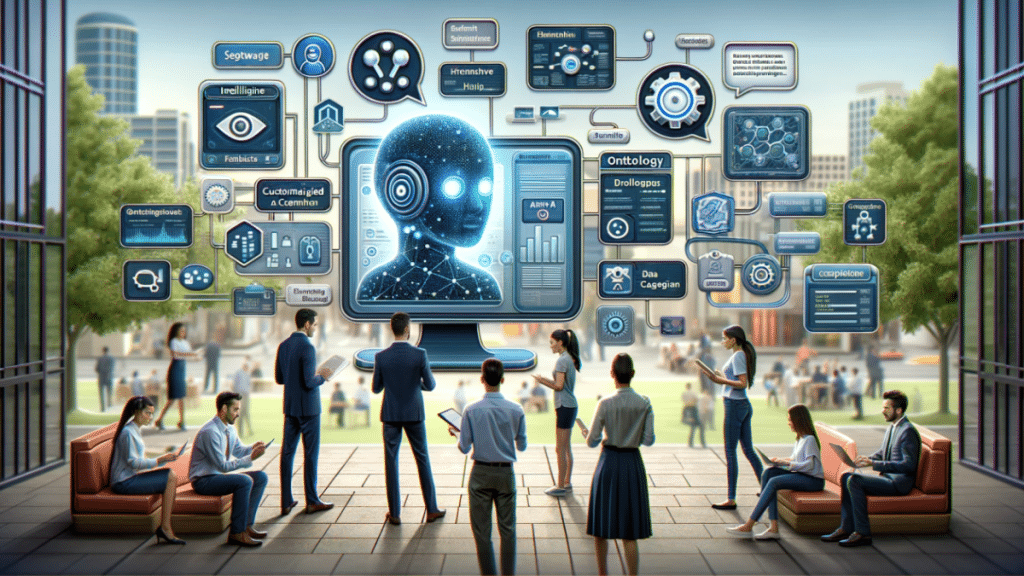In 2023, Gartner reported that 37% of companies had used Artificial Intelligence (AI) in some capacity, and 62% intended to do so soon. Businesses that include AI in their business software have shown increases in output, client happiness, and operating effectiveness. One cannot stress the increasing significance of AI in the sector since it provides hitherto unheard-of chances for innovation and market competitiveness.
Overview of AI Software Development
Artificial intelligence is a broad subject that includes several technologies that allow machines to imitate human intelligence. Neural networks, computer vision, machine learning, and natural language processing (NLP) are the fundamental building blocks of artificial intelligence. These parts enable computers to carry out intricate jobs such as pattern recognition, data analysis, language comprehension, and decision-making.
It becomes strong because AI allows software to learn from data, adjust to new inputs, and get better over time without human involvement. AI finds application in software development through sophisticated security measures, automated testing tools, predictive analytics, and intelligent coding assistants. Integrating AI allows programmers to produce more dependable, smart, and effective software.
Benefits from Software AI Integration
AI integration with software is greatly benefiting companies in many different industries. According to recent McKinsey & Company research, businesses that used AI in their operations saw a 20–30% rise in productivity and a 30–50% drop in expenses.
Within software development, AI offers the following main advantages:
- Increased Productivity and Efficiency: By automating monotonous processes, AI frees developers to concentrate on more intricate and artistic parts of software development.
- Higher Accuracy and Less Errors: AI-driven tools are more effective than human developers in identifying and fixing mistakes.
- Faster Decision-Making and Automation: AI allows real-time data processing and analysis, facilitating faster and more knowledgeable decisions.
- Better User Experiences and Customisation: AI customizes software features and interfaces to suit users’ particular requirements and tastes.
- Scalability and Flexibility: AI systems require little reprogramming to adjust to new needs and grow with the company.
- Cost Savings: AI-enhanced process optimization and automation can result in significant development and maintenance cost savings.
- Enhancing Security: AI can proactively detect and counteract security risks by real-time pattern and anomaly analysis.
- Continuous Improvement: AI systems learn and develop continuously, resulting in increasingly successful software solutions.
- Advanced Analytics and Insights: AI offers in-depth data insights that can guide strategic choices and propel company expansion.
Early adopters of AI technologies can innovate more quickly and obtain a competitive advantage in their markets. If you don’t have the software yet to integrate the AI capabilities, then I would recommend you to go for AI software development in which AI capabilities are added while developing the software from scratch.
Illustrations of AI Applications in Various Sectors
The development of AI software is helping several sectors in different ways. AI is used, for example, in the financial business for risk management and fraud detection and in the healthcare industry for predictive analytics in patient care. Retail companies use artificial intelligence to improve supply chains and client experiences using customized recommendations.
Development of AI software finds practical applications in:
Predictive Analytics in Project Management: Artificial intelligence (AI) solutions for project management forecast project schedules, resource requirements, and possible hazards, thus enhancing project planning and execution.
AI-Powered Coding Assistants: These technologies assist engineers in writing cleaner and more effective code by offering mistake detection and real-time recommendations.
Automated Testing and Quality Assurance: AI-enabled testing and quality assurance guarantee software dependability and shorten the human testing process.
Artificial Intelligence Chatbots and Customer Service Tools: AI chatbots manage questions, handle problems, and offer round-the-clock customer service, which raises customer satisfaction.
Conclusion
Software development may profit much from AI integration, including more accuracy, efficiency, and better user experiences. Businesses will reach previously unattainable heights of creativity and competitiveness as they implement AI technologies. Businesses that want to use AI well should keep up with the most recent developments and consider working with AI software development specialists. By doing so, companies can guarantee that they can fully utilize AI in their software solutions.
